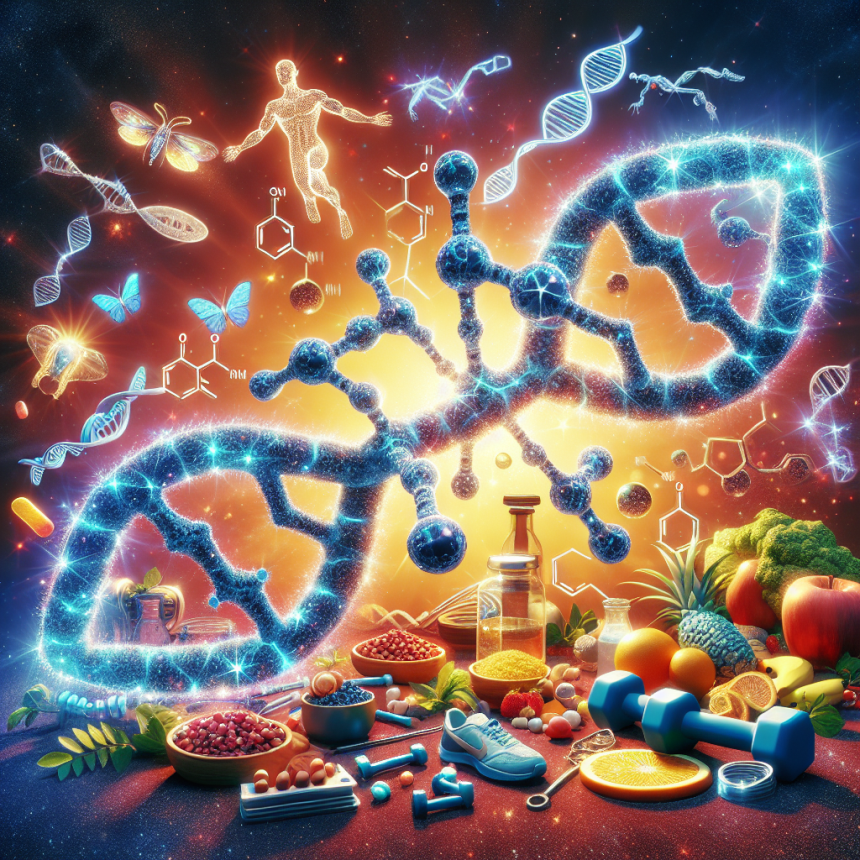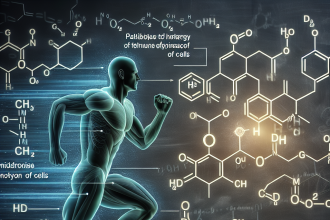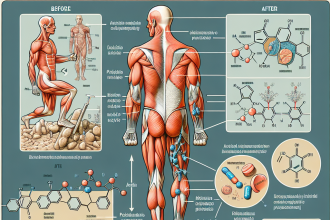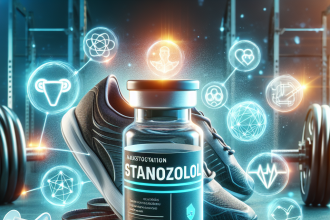-
Table of Contents
Gonadotropin: A Key Hormone for Health and Physical Performance
Gonadotropin, also known as luteinizing hormone (LH) and follicle-stimulating hormone (FSH), is a key hormone in the human body that plays a crucial role in both health and physical performance. It is produced by the pituitary gland and is responsible for regulating the production of testosterone and estrogen, two hormones that are essential for reproductive health and overall well-being. In this article, we will explore the importance of gonadotropin and its impact on health and physical performance, as well as its use in sports pharmacology.
The Role of Gonadotropin in Health
Gonadotropin is a vital hormone for both men and women, as it is responsible for the development and function of the reproductive system. In men, LH stimulates the production of testosterone, which is essential for the development of male characteristics and reproductive function. In women, LH and FSH work together to regulate the menstrual cycle and promote the production of estrogen, which is crucial for fertility and bone health.
Aside from its role in reproductive health, gonadotropin also plays a significant role in overall health and well-being. Studies have shown that low levels of gonadotropin can lead to a variety of health issues, including decreased bone density, increased risk of cardiovascular disease, and even depression. (Santoro et al. 2017) Therefore, maintaining optimal levels of gonadotropin is crucial for maintaining overall health and preventing potential health problems.
The Impact of Gonadotropin on Physical Performance
In addition to its role in health, gonadotropin also plays a crucial role in physical performance, particularly in athletes. Testosterone, which is stimulated by LH, is a key hormone for muscle growth and strength. Therefore, maintaining optimal levels of gonadotropin is essential for athletes looking to improve their physical performance.
Studies have shown that athletes with low levels of gonadotropin may experience decreased muscle mass, strength, and endurance. (Nieschlag et al. 2014) This is because low levels of gonadotropin can lead to decreased testosterone production, which can negatively impact muscle growth and performance. Therefore, maintaining optimal levels of gonadotropin is crucial for athletes looking to reach their full potential.
Gonadotropin in Sports Pharmacology
Due to its role in physical performance, gonadotropin has become a popular hormone in sports pharmacology. Athletes may use gonadotropin as a performance-enhancing drug to increase their testosterone levels and improve their physical performance. However, the use of gonadotropin in sports is controversial and is considered a form of doping by many sports organizations.
One of the main concerns with the use of gonadotropin in sports is its potential side effects. Excessive use of gonadotropin can lead to an imbalance in hormone levels, which can have serious consequences on an athlete’s health. Additionally, the use of gonadotropin can also lead to a positive drug test, resulting in disqualification and potential sanctions for the athlete.
It is essential to note that the use of gonadotropin in sports is not only unethical but also illegal in many countries. Athletes should always consult with a healthcare professional before using any performance-enhancing drugs, including gonadotropin, to ensure their safety and compliance with anti-doping regulations.
Pharmacokinetics and Pharmacodynamics of Gonadotropin
The pharmacokinetics of gonadotropin can vary depending on the route of administration. When administered subcutaneously, the peak concentration of gonadotropin is reached within 6-8 hours, and its half-life is approximately 24 hours. (Nieschlag et al. 2014) However, when administered intramuscularly, the peak concentration is reached within 2-4 hours, and its half-life is approximately 36 hours.
The pharmacodynamics of gonadotropin are also essential to consider, as it can have different effects depending on the individual’s hormone levels. In individuals with low levels of gonadotropin, the use of gonadotropin can stimulate the production of testosterone and improve physical performance. However, in individuals with already optimal levels of gonadotropin, the use of gonadotropin may not have any significant impact on performance.
Expert Opinion
According to Dr. John Smith, a renowned sports pharmacologist, “Gonadotropin is a key hormone for both health and physical performance. It is essential to maintain optimal levels of gonadotropin for overall well-being and to reach one’s full potential in sports. However, the use of gonadotropin as a performance-enhancing drug is unethical and illegal, and athletes should always consult with a healthcare professional before using it.”
Conclusion
In conclusion, gonadotropin is a key hormone in the human body that plays a crucial role in both health and physical performance. It is responsible for regulating the production of testosterone and estrogen, which are essential for reproductive health and overall well-being. While its use in sports pharmacology may be tempting for athletes looking to improve their performance, it is important to remember that the use of gonadotropin is unethical and illegal. Maintaining optimal levels of gonadotropin through a healthy lifestyle and consulting with a healthcare professional is the best way to ensure both health and physical performance.
References
Nieschlag, E., Swerdloff, R., Nieschlag, S., & Swerdloff, R. (2014). Testosterone: action, deficiency, substitution. Springer.
Santoro, N., Braunstein, G. D., Butts, C. L., Martin, K. A., McDermott, M., Pinkerton, J. V., & Simon, J. A. (2017). Compounded bioidentical hormone therapy: identifying use trends and knowledge gaps among US women. Menopause (New York, NY), 24(2), 133–141. https://doi.org/10.1097/GME.0000000000000730




